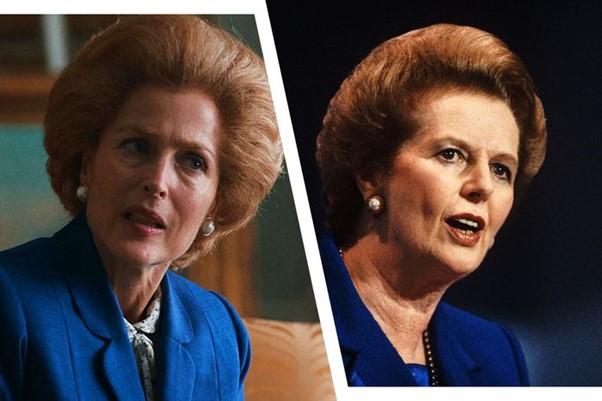ECONOMIES, SOCIETIES AND THE QUALITY OF HUMAN LIFE
Societies are under stress: We live in interesting times. Global warming, political corruption, Free Market Economics, Brexit, Inequality, widespread poverty and warfare – all have similar roots.
Many Civil Societies across the world are under great stress. The root causes are the power of financial and political elites, which have had the freedom to act as they will and increase their wealth without regard to the interests of the majority of population. Work has been degraded, people treated like objects and they have seen their wellbeing and earnings steadily reduced. It has sunk into the popular awareness that the promises and uplifting messages with they are fed are based on a tissue of untruths, and many people are becoming very angry with the causes of their misery – “Them”, the elites who control societies. Recent happenings are a result of popular rage at inequality and powerlessness. How this will play out is impossible to predict, for rich elites do not yield their privileges easily.

The Quality of Society - the most pressing issue of our age.
History, culture, political/economic philosophies and dogma, finance and politics - all influence the quality of societies, and in turn the quality of human existence. The vast and growing differences between rich and poor countries and the conflicts generated by gross inequality are endangering the future of the planet and the lives of all species, not just humans.
Whilst this website is based on the best factual information that I can find, it is inevitably underpinned by my own experiences and values. The central one is that Societies should serve the interests of all their members, not just a rich and powerful minority. There is good evidence that societies based on marked inequality are not sustainable. Sooner or later they will suffer from stress or breakdown and cease to function effectively.
A Socio-economic history of Britain from the Second World War to the Labour landslide victory in 2024.
What factors have shaped the quality of Society In Britain?
Let’s start with World War Two. Such was the threat to national survival and inspired by the wonderful leadership of Winston Churchill most elements of British Society worked toward a Common Goal of survival.

Winston Churchill
But Churchill was unable to lead towards an effective post war society. It was left to Clement Attlee the first post war Labour party leader to create the foundations of an effective Society

Clement Attlee
Behind the work of government was the Beveridge report. It was drafted by the Liberal economist William Beveridge – with research and publicity by his wife, mathematician Janet Philip – who proposed widespread reforms to the system of social welfare to address what he identified as "five giants on the road of reconstruction": "Want… Disease, Ignorance, Squalor and Idleness". Published in the midst of World War II, the report promised rewards for everyone's sacrifices. Overwhelmingly popular with the public, it formed the basis for the post-war reforms known as the welfare state, which include the expansion of National Insurance and the creation of the National Health Service.
The Beveridge Report
The Report offered three guiding principles to its recommendations:
- Proposals for the future should not be limited by "sectional interests". A "revolutionary moment in the world's history is a time for revolutions, not for patching".
- Social insurance is only one part of a "comprehensive policy of social progress". The five giants on the road to reconstruction were Want, Disease, Ignorance, Squalor and Idleness.
- Policies of social security "must be achieved by co-operation between the State and the individual", with the state securing the service and contributions. The state "should not stifle incentive, opportunity, responsibility; in establishing a national minimum, it should leave room and encouragement for voluntary action by each individual to provide more than that minimum for himself and his family".
The Post war Attlee government
The Labour Party, led by Attlee, won a landslide victory in the 1945 general election, on their post-war recovery platform. They inherited a country close to bankruptcy following the Second World War and beset by food, housing and resource shortages. Attlee led the construction of the first Labour majority government, which aimed to maintain full employment, a mixed economy and a greatly enlarged system of social services provided by the state. To this end, it undertook the nationalisation of public utilities and major industries, and implemented wide-ranging social reforms, including the passing of the National Insurance Act 1946 and National Assistance Act 1948, the formation of the National Health Service (NHS) in 1948, and the enlargement of public subsidies for council house building. His government also reformed trade union legislation, working practices and children's services; it created the National Parks system, passed the New Towns Act 1946 and established the town and country planning system.
Then… Margaret Thatcher
Margaret Thatcher's tenure as Prime Minister of the United Kingdom began on 4 May 1979 when she accepted an invitation from Queen Elizabeth II to form a government, succeeding James Callaghan of the Labour Party, and ended on 28 November 1990 upon her resignation.
Conservative prime minister Margaret Thatcher went on to change much of the achievements of the Attlee government:

The threads of Thatcher’s dogmatic beliefs have lasted through many changes of government.:
- Margaret Thatcher's policies as prime minister changed many aspects of British life, and were collectively called Thatcherism. But what does the term mean?
- A handful of political leaders are influential enough to have an ism after their name. But no political philosophy has shaped a nation in quite the same way as Thatcherism.
- At its most crude, Thatcherism represents a belief in free markets and a small state. Rather than planning and regulating business and people's lives, government's job is to get out of the way.
- It should be restricted to the bare essentials: defence of the realm and the currency. Everything else should be left to individuals, to exercise their own choices and take responsibility for their own lives.
Thatcher has had a lasting effect through British Politics.
There have been a number of governments since Thatcher, But the last governments since 2010 have been...
Right Wing, Free Market (building on Thatcherite Dogma) governments since 2010:
- Conservative–Liberal Democrat Coalition Government, 2010–2015.
- Conservative Government, 2015–2024.
- Then following what became known as A “Broken economy and Society…
The effects of Neo-liberal free market ideologies over long periods, the latest being a run Conservative governments from 2010 to 2024.
Have left a “broken society”. Some effects:
Low Growth – amongst the lowest in Europe, rampant inequality,
Crisis in Housing, Broken National Health Service, Drug abuse, violent crime, teenage delinquency, family breakdown, welfare dependency, poor urban environments, educational failure, poverty, the loss of traditional values, teenage pregnancy, dysfunctional families, binge drinking, children who kill: all have been cited as proof that we have a broken society.
Prime minister Tony Blair in 1995 asked us to look at “the wreckage of our broken society” and, using the now-familiar language of rights and responsibilities, called for a new civic society where everyone played a part.
If the UK’s pace of under performance relative to Germany continues at the same pace in the 2020s, then it will end this decade with GDP per capita much closer to that of Italy than Germany.
2024 General Election: Labour Landslide win, following the breakdown of a run of neo-liberal right wing governments. Conservative chaos
The 2024 United Kingdom general election was held on Thursday, 4 July 2024 to elect 650 members of Parliament to the House of Commons, the lower house of the Parliament of the United Kingdom. The opposition Labour Party, led by Keir Starmer, defeated the governing Conservative Party, led by Rishi Sunak, in a landslide victory.
What can we learn from long periods of Conservative dominance?
The first and most important insight is that Societies in which there is a conscious integration between Government and other elements of Society suffer from less inequality and the problems caused by it.
Sir Clive Cowdrey, Founder of the Resolution Foundation and Co-Chair of The Economy 2030 Inquiry, said:
“The UK’s recent record of weak productivity, stagnant living standards and high inequality makes a new economic approach desirable. What makes a new approach essential is the scale of coming change.
“The UK now faces a decisive decade, as the aftermath of Covid-19, Brexit and the Net Zero transition come together with major shifts in technology and demography. This matters for far more than economics. Failing to rise to this challenge risks leaving the nation diminished and divided.”
Baroness Minouche Shafik, Director of the LSE and Co-Chair of The Economy 2030 Inquiry, said:
“The decade ahead will be decisive for the UK. New trading relationships, the digital revolution, and net zero will fundamentally change our economy and society. We need to rethink our economic strategy to rise to these challenges and ensure that we create a society in which everyone can thrive.”
2024…The UK is facing a ‘decisive decade’ of change that the country is neither used to, nor prepared for
The Scourge of Inequality The truth is that we remain a country where too much potential is untapped, too much talent unrealised, too much innovative capacity underdeveloped, and too much creative impulse left with no outlet. Because, for too long, we have developed only some of the potential of some of the parts of our country, not of everyone, everywhere in the country. Talent is everywhere, but opportunities are not equally spread. Our Commission was shocked by internationally recognised evidence from Professor Philip McCann. Half the UK population live in areas no better off than the poorer parts of the former East Germany, poorer than parts of central and Eastern Europe.
2024 Labour Government’s strategy: Recommendations for Change
The proposals of the 2024 Labour government bear interesting similarities with that of Clement Attlee following the second World War:
Britain needs change – giving the people of Britain more power and control over our lives and the decisions that matter to us. Changing not just who governs us, but how we are governed, will address a system of government that the British people perceive is broken. All the evidence from recent experience is that putting too much power and control in the hands of a few leads to bad decisions and bad outcomes.
- Our first set of recommendations set out how we deliver our vision of a New Britain.
Our aim is that each citizen as a member of our country can expect government:- to treat all parts of the UK fairly,
- to guarantee rights and ensure a minimum level of living standards,
- to respect the decisions made by local and devolved authorities.
- Our second set of recommendations ensures the right powers in the right places in England so that every town and city can take control of its economic future and have its fair share of resources to play its part in creating prosperity open to all.
- Our third set of recommendations concerns Scotland, Wales, and Northern Ireland. The Commission’s blueprint is intended to give the people of Scotland, Wales and Northern Ireland a new opportunity to benefit from the unique and mutually beneficial combination of self-government and shared government that their nations enjoy: the opportunity to pursue faster change within a reformed UK.
- Our fourth set of recommendations focus on our institutions of shared government. By giving each part an equal and respected voice in joint decision making and creating new institutions to drive better co-operation we will embed in Westminster and Whitehall a new culture of cooperation in pursuit of shared goals across the UK.
- Our fifth set of recommendations will start the process of cleaning up our politics – making politicians more accountable for their behaviour and fighting back against the excessive influence of donors.
- Our sixth set of recommendations will clear out the indefensible House of Lords and replace it with a smaller, more representative and democratic second chamber to safeguard the new constitutional basis of the New Britain.
Finally…
The British people are the most important stakeholders in the conversation about the future of our country, and we believe these recommendations should form the start of a conversation about a New Britain and require public consultation and further development.
Postscript
Successful and Healthy Societies
A good Society – characteristics and benefits
- Absence of Corruption.
- Truthful, Unbiased, and Objective Media.
- Easy Access to Free Education.
- Income Equality.
- Avoiding Concentration of Wealth and Power in the hands of a few.
- Economy Powered by Reciprocity and Cooperation.
- Humble and Empathetic Leadership.
- A Well-functioning Democracy.




